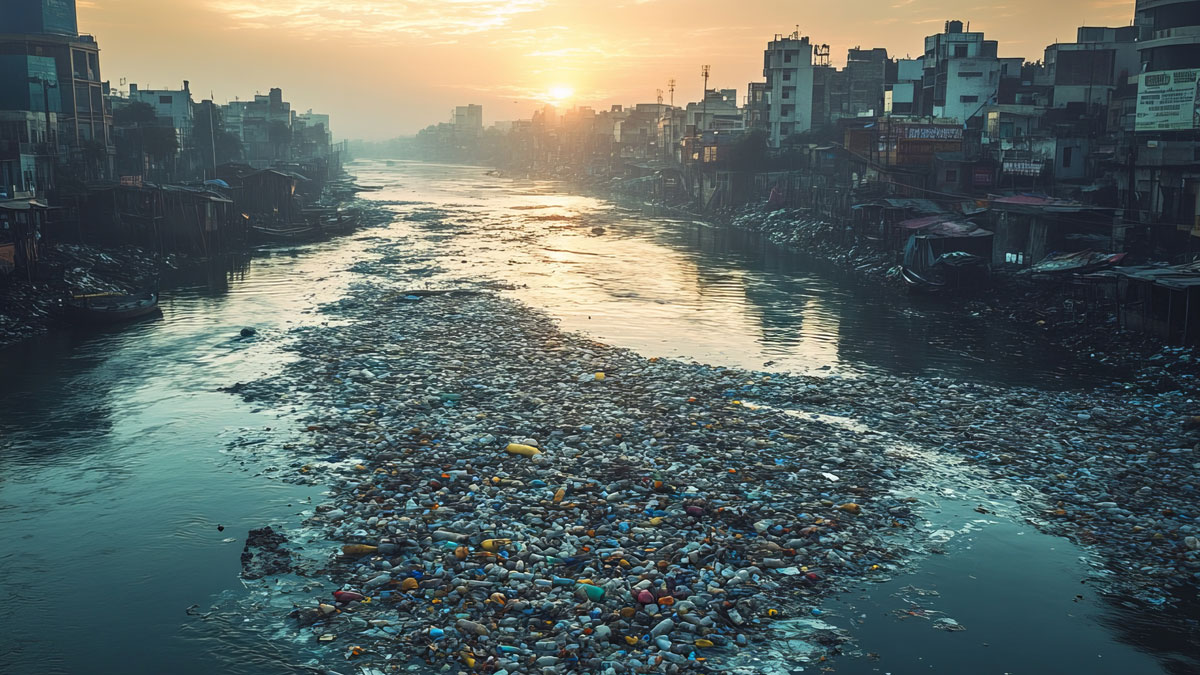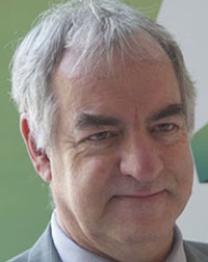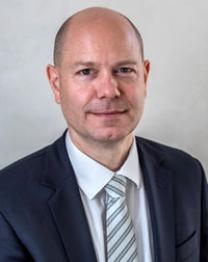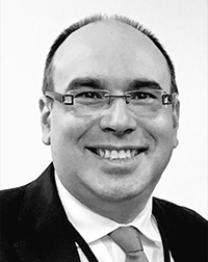© Adobe Stock Ratcha
The rapid urbanization of the global population, with over 4.4 billion people currently residing in cities, has intensified challenges related to waste management. As cities expand, the generation of municipal wastewater, solid waste (both organic and inorganic fractions), and greenhouse gas emissions increases significantly.
Recent studies highlight that while solid waste scales linearly with population growth, wastewater production increases at a superlinear rate, and emissions grow sublinearly. For example, Municipal solid waste generation is predicted to grow from 2.1 billion tonnes in 2023 to 3.8 billion tonnes by 2050 (UNEP, 2014). It is also estimated that, globally, over 80% of all wastewaters produced is discharged into the environment without adequate treatment although the level varies across different regions. The complexity of these challenges, which involve multiple dimensions of pollution beyond GHG emissions, requires innovative solutions that promote circular economy actions at the local level with global support.
A transformative approach, involving a shift from unsustainable consumption and production patterns towards a circular economy across the various fractions of solid waste and water management, is essential. International organizations, by fostering cooperation with Local and Regional Governments (LRGs), can play a critical role in supporting cities to achieve water and solid waste management and material recovery goals that contributes to local socio-economic development and aligns with global sustainability objectives (SDG 6, 11, 12 and 14).
Objectives
The webinar aims to:
- Facilitate cooperation: Explore how international organizations can support local waste management efforts through knowledge sharing, capacity building, and funding.
- Showcase best practices: Present successful case studies of waste reuse, repurposing, recycling, upcycling and reduction from cities around the world.
- Encourage policy innovation: Discuss policy frameworks that integrate circular economy principles into urban planning and waste management.
Thematic areas
1. Solid waste management (including plastic)
Growing incomes and consumption lead to increased municipal solid waste, particularly plastics and organic waste, which can have long-lasting environmental impacts if mismanaged. Changing the production and consumption mindset would save the municipality on operational costs to be redirected towards essential public services like education, healthcare, and infrastructure.
2. Wastewater management
As cities grow, wastewater production increases faster than population growth, stressing existing infrastructure and leading to pollution of water bodies. Implementing decentralized filtering and wastewater treatment systems requires significant resources. It might bring new trade in services providers and increase employment opportunities, which can help reduce unemployment and boost the local economy.
3. Greenhouse gas emissions
Urban areas are major contributors to greenhouse gas emissions, although the increase in emissions is slower than population growth. Better energy and materials efficiency – adapting clean technologies, enhancing public transportation – improves public health and the quality of life for residents, especially in marginalized communities, and enhances overall workforce productivity.
4. Solid waste treatment and reuse
Efficient recycling and reuse systems are essential for reducing the overall waste burden, including plastics. However, scaling these systems in large urban settings is complex and expensive. Developing circular economy strategies support the development of small- and medium-sized enterprises (SMEs), drives innovation, and increases economic resilience within urban areas.
Role of International Organizations
International organizations, such as UN Trade and Development, UN-Habitat, UNDP, UNEP and the World Bank are pivotal in assisting cities to achieve sustainable waste management goals. Their roles include:
- Knowledge sharing: Creating platforms for LRGs to exchange experiences, challenges, and solutions in waste management, fostering a global community of practice.
- Policy support: Assisting in the development of national and local policies that align with global sustainability goals and promote waste reduction, recycling, and reuse.
- Capacity building: Providing training and resources to local authorities and stakeholders on best practices in waste management and circular economy.
- Funding and investments: Facilitating access to international funds for infrastructure development, technology adoption, and innovative waste management projects.
Expected outcomes
- Identification of practical strategies and solutions for effective urban waste management.
- Strengthened collaboration between local governments, international organizations, and other stakeholders.
- Actionable recommendations for integrating circular economy principles into urban waste management.
Tentative Programme
Panelists:
- Mr. Graham Alabaster, Head of UN Habitat Geneva Office
- Ms. Mona Mohammed, Programme Manager at the Life Cycle Initiative and Cities and Buildings Unit, Climate Change Division, UNEP
- Mr. David Vivas Eugui, Chief of Section, Ocean and Circular Economy, UN Trade and Development (UNCTAD)
- Mr. Henrique Pacini, Economic Affairs Officer, Trade, Environment, Climate Change and Sustainable Development, UN Trade and Development, (UNCTAD)
- Mr. Victor Neequaye Kotey is the Deputy Director of the Waste Management Department of the Accra Metropolitan Assembly
Moderator:
- Mr. Andras Szorenyi, Senior Policy Advisor, Global Cities Hub
Dr Graham Alabaster is a public health engineer by profession and is UN-Habitat’s Director of the Geneva office, where he represents the Executive Director of UN-Habitat. He is responsible for liaison with Geneva-based member states missions and international organisations.
After an early career in academic research in the UK and Africa, and a period in industry, he joined UN-Habitat in 1992. Since then, he has looked after many different portfolios including: Slum upgrading, environmental infrastructure; health and environment; Water, Sanitation and waste management. In addition, he has been responsible for developing relationships with the regional development banks and the private sector. During this period, he has been on secondment to both the World Health Organisation (WHO), and UNHCR, where he has applied his expertise to preventative health in urban settings and humanitarian environments. The work has usually included both policy advice to members states and project design and implementation.
He was responsible for the development of the UN-system wide monitoring mechanism for SDG 6 on Water, and also the co-custodian of indicator 6.3.1 on wastewater. He is currently the co-chair of the RBM End Malaria Now, Multi-sectoral working group, and is a Lancet Commissioner for the build-out of Aedes-borne diseases in cities. In addition, he represents UN-Habitat on many inter-agency bodies and advisory groups. He has also produced a variety of publications including global reports and technical papers in journals.
He has over 35 years- experience in the urban sector and has worked in over 50 countries in all regions of the world. He holds a BSc (Hons.) in Chemical Engineering and a PhD in Civil Engineering.
András Szorényi joined the Global Cities Hub after 20 years of distinguished diplomatic career. He worked in different capacities in Brussels, covering EU affairs, Washington D.C. dealing with bilateral relations and in Geneva, working with the United Nations and other International Organizations. He has first-hand experience of negotiating in the European Union and the UN system as well as conceptualizing and implementing diplomatic initiatives on a wide variety of issues.
With a deep knowledge of international relations, he always focuses on new global developments and emerging challenges. He has a broad understanding of the engagement of non-state actors on multi-stakeholder platforms. He has been particularly interested in the increasing influence of non-state actors on the development of international relations since his Ph.D. research.
Dr. Szorényi holds a Ph.D. in International Economics from Corvinus University, a DEA in Comparative Political Sciences from Sciences Po Paris and a Master degree in International Relations from the University of Economics in Budapest.
David Vivas Eugui is Chief of Ocean and Circular Economy Unit, a.i., Trade, Environment, Climate Change and Sustainable Development Branch, at UNCTAD.
Previously, he was a Senior Economic Affairs Officer in UNCTAD’s Trade Negotiations and Commercial Diplomacy Branch, Deputy Programmes Director at the International Centre for Trade and Sustainable Development (ICTSD), Senior Attorney at the Center for International Environmental Law (CIEL), Attaché for Legal Affairs at the Mission of Venezuela to the World Trade Organization (WTO) and Staff Attorney at the Venezuelan Institute of Foreign Trade. David is an international expert with more than 20 years of experience on legal and economic issues.
He has worked as an advisor and consultant for various institutions, international and national organizations and has lectured on intellectual property, trade, oceans economy and environmental law at the University of Strasbourg (CEIPI), Universidad de Buenos Aires (Argentina), Universidad Javeriana (Colombia), Maastricht University (the Netherlands), WIPO Distant Learning Academy, and University of Business and International Studies (Switzerland).
He holds a JD from the Universidad Catolica Andres Bello, an LLM from Georgetown University and a Master in Transnational Business from the Universidad Externado de Colombia.
Henrique Pacini is an economist at the United Nations in Geneva, where he works on trade and circular economy issues. He has a degree in economics from the University of São Paulo, a Masters in European Studies from Hochschule Bremen, Germany, and a Ph.D in Energy Technology from KTH, Sweden.
He recently completed a post-doctoral fellowship at Harvard University, where he examined the commercial dynamics of secondary/scrap materials in world trade, and co-chaired Harvard’s first Circular Economy Symposium. Dr. Pacini published over 60 articles on environment, energy, trade and development issues.





